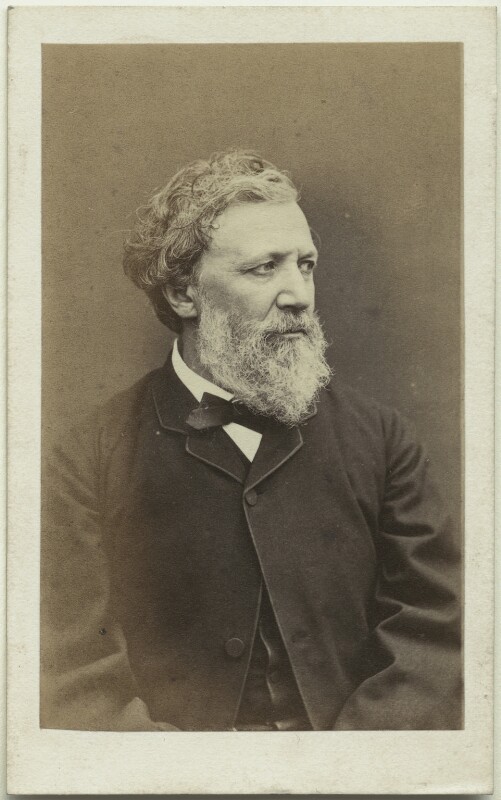Robert Browning (1812-1889)

Robert Browning’s father, Robert Browning, worked as a clerk in the Bank of England. His mother, Sarah Anna Wiedemann, was devoutly religious. So it might seem at first glance that Browning was born into a stereotypically conventional middle-class Victorian household.
Browning’s father, however, had a strong scholarly bent and encouraged his son to delve into art and literature, particularly by means of the personal library Browning senior had amassed. Browning consequently became something of an autodidact, even as he received formal education at home from his father. His mother, too, had a deep love of music that seems to have influenced Browning’s work, both in style and subject matter.
Critics deemed Browning’s first published work, Pauline: A Fragment of a Confession (1833), as too inclined towards Romanticism, revealing too much influence by Shelley. John Stuart Mill famously said of Pauline: “With considerable power, this writer seems to me possessed with a more intense and morbid self-consciousness than I ever knew in any sane human being.”[1] Browning consequently moved towards more objective expression, as demonstrated in his Dramatic Lyrics (1842), a volume in which his dramatic monologues took form.
In 1846, Browning eloped with Elizabeth Barrett to Italy where they had a son, Robert “Pen” Browning (1849-1912). After Elizabeth Barrett Browning died in 1861, Robert and Pen returned to London. Browning began to win critical acclaim, particularly with the publication of his monumental The Ring and the Book (1868-69), a poem based on the seventeenth-century trial testimony of an Italian nobleman condemned to death for murdering his wife.
This material is a derivative of Bonnie J. Robinson, “Robert Browning,” British Literature II: Romantic Era to the Twentieth Century and Beyond” (2018): 429-430. English Open Textbooks. 16. https://oer.galileo.usg.edu/english-textbooks/16 and is licensed under CC BY-SA 4.0
- For a full account of Mill's reading and reviews of Browning's volume, see Peterson, William S., and Fred L. Standley. “The J. S. Mill Marginalia in Robert Browning’s ‘Pauline’: A History and Transcription.” The Papers of the Bibliographical Society of America, vol. 66, no. 2, 1972, pp. 135–70. JSTOR, http://www.jstor.org/stable/24301768. Accessed 26 July 2023. ↵

